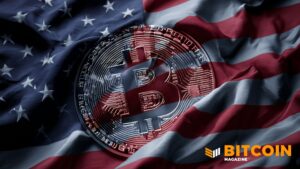
Introduction
In our highly digitalized world, physical goods are still widely used to store value. Real estate is the most popular store of value globally, accounting for approximately 67% of global wealth. However, recent macroeconomic and geopolitical challenges have exposed the vulnerabilities of real estate as a physical store of value. The question arises: what happens to real estate during times of conflict? Can it be destroyed or confiscated? In this article, we will explore the advantages of Bitcoin as a superior alternative to real estate in terms of value storage.
War and Destruction of Wealth
The 21st century has witnessed an unprecedented cost of war, with over 238,000 people losing their lives in conflicts last year alone. Global sources of conflict, such as Syria, Sudan, Ukraine, Palestine, Israel, and Lebanon, continue to increase. In these conflict-ridden areas, properties have been destroyed, leading to the evaporation of stored value. The destruction of physical wealth has historically been a significant threat to overall prosperity, alongside inflation and taxation. Throughout history, armies have ruthlessly plundered cities and destroyed the belongings of residents, underscoring the risks associated with storing value in physical assets like real estate.
Physical vs. Digital Store of Value
Fortunately, Bitcoin provides a solution to the threat of wealth destruction in physical assets. As a digital store of value, Bitcoin is difficult to destroy and easy to move. Since its introduction in 2009, Bitcoin has challenged the role of real estate as the preferred store of value, offering a better alternative for individuals worldwide to protect their wealth.
Unlike real estate, Bitcoin allows for the purchase of very small denominations, with the smallest unit being 1 satoshi (1/100,000,000 of a bitcoin). Storing Bitcoin safely requires only a basic computer without internet access and a BIP39 Key generator, or a hardware wallet that can be purchased for $50. In the event of relocation, Bitcoin can be easily transported by memorizing a 12-word backup (seed phrase) for the wallet.
Digitization
Digitization optimizes value preservation in various aspects. Bitcoin is rarer, more accessible, cheaper to maintain, more liquid, and, most importantly, allows for the movement of wealth during times of crisis. Holding wealth in a digital asset like Bitcoin provides true ownership, offering protection against taxation, destruction, and confiscation.
Property Confiscation
Throughout history, physical stores of value have left individuals vulnerable to government overreach. Examples include the expropriation of property from Jews in Nazi Germany and property losses during Fidel Castro's regime in Cuba. Safeguarding wealth in a digital asset such as Bitcoin proves challenging to confiscate, tax, destroy, and easy to move.

Macroeconomic Changes
Macroeconomic shifts can rapidly devalue real estate, particularly when purchased through loans. Increased interest rates decrease affordability for financing, resulting in reduced demand and lower property prices. The current global scenario reflects this trend, with increased interest rates and reduced demand contributing to the decline in property values worldwide.
Bitcoin vs. Real Estate
Bitcoin is less susceptible to the problems of the traditional fiat financial system compared to real estate. Operating independently, Bitcoin is minimally influenced by variables such as interest rates, central bank decisions, and arbitrary governmental actions. Its price is primarily determined by supply, issuance schedule, and adoption rate.
Bitcoin follows a disinflationary model, gradually reducing its supply until reaching a hard limit in 2140. Halving events occur approximately every four years, reducing the bitcoin awarded to miners, and ultimately decreasing the daily issuance. Currently, Bitcoin has an annual inflation rate of around 1.8%, expected to drop to 0.9% after the upcoming halving. The continuous decline in supply, coupled with its increasing adoption, creates deflationary pressure on the Bitcoin network.
Real estate, on the other hand, does not exhibit such a strong deflationary movement. While it is also scarce due to limited building land, there is no hard cap. New building land can be developed, and zoning laws can enable the construction of additional floors.
Absolute Scarcity
The concept of an inherently scarce asset was non-existent before Bitcoin. Even gold, often considered scarce, possesses an elastic supply as increased demand prompts intensified mining efforts. Bitcoin, in contrast, exhibits a fixed supply that diminishes with each halving event, resulting in a perpetual increase in price as long as demand exists.
This dynamic is expected to continue even during global economic crises. The supply of Bitcoin will continue to decrease, and its price is likely to rise due to expected continued demand in times of crisis. Even inflation can have a positive impact on the price of Bitcoin as it increases the availability of fiat currencies that can be invested in Bitcoin.
Conclusion
In a world marked by growing radicalization and a financial system undergoing a profound crisis, Bitcoin emerges as a superior choice for storing value, particularly during periods of macroeconomic fluctuations. Its significance is expected to rise during turbulent times, potentially surpassing real estate as the preferred store of value in the distant future. As more individuals recognize the advantages of Bitcoin for wealth preservation and securing their livelihoods, the adoption of this digital asset will likely increase.
This article was written by Leon Wankum. The opinions expressed are entirely their own and do not necessarily reflect those of BTC Inc or Bitcoin Magazine.
Frequently Asked Questions
How to Open a Precious Metal IRA?
First, decide if an Individual Retirement Account is right for you. Once you have decided to open an Individual Retirement Account (IRA), you will need to complete Form 806. You will then need to complete Form 5204 in order to determine which type IRA you are eligible. This form should be completed within 60 days after opening the account. Once you have completed this form, it is possible to begin investing. You may also choose to contribute directly from your paycheck using payroll deduction.
For a Roth IRA you will need to complete Form 8903. Otherwise, the process is identical to an ordinary IRA.
To be eligible for a precious metals IRA, you will need to meet certain requirements. The IRS requires that you are at least 18 years old and have earned an income. Your earnings cannot exceed $110,000 per year ($220,000 if married and filing jointly) for any single tax year. Contributions must be made on a regular basis. These rules are applicable whether you contribute through your employer or directly from the paychecks.
You can invest in precious metals IRAs to buy gold, palladium and platinum. You can only purchase bullion in physical form. You won't have the ability to trade stocks or bonds.
You can also use your precious metals IRA to invest directly in companies that deal in precious metals. Some IRA providers offer this option.
An IRA is a great way to invest in precious metals. However, there are two important drawbacks. First, they aren't as liquid than stocks and bonds. They are therefore more difficult to sell when necessary. They also don't pay dividends, like stocks and bonds. Also, they don't generate dividends like stocks and bonds. You will eventually lose money rather than make it.
What are the fees associated with an IRA for gold?
A monthly fee of $6 for an Individual Retirement Account is charged. This includes account maintenance fees and investment costs for your chosen investments.
You may have to pay additional fees if you want to diversify your portfolio. The fees you pay will vary depending on the type of IRA that you choose. Some companies offer free checking accounts, but charge monthly fees to open IRA accounts.
Most providers also charge an annual management fee. These fees vary from 0% to 11%. The average rate is.25% annually. These rates can often be waived if a broker, such as TD Ameritrade, is involved.
Can I have physical gold in my IRA
Not only is gold paper currency, but it's also money. People have used gold as a currency for thousands of centuries to preserve their wealth and keep it safe from inflation. Today, investors use gold as part of a diversified portfolio because gold tends to do better during financial turmoil.
Many Americans are now more inclined to invest in precious metals like gold and silver than stocks or bonds. While owning gold doesn't guarantee you'll make money investing in gold, there are several reasons why it may make sense to consider adding gold to your retirement portfolio.
One reason is that gold historically performs better than other assets during financial panics. Between August 2011 to early 2013, gold prices rose close to 100 percent while the S&P 500 fell 21 per cent. During those turbulent market conditions, gold was among the few assets that outperformed stocks.
One of the best things about investing in gold is its virtually zero counterparty risk. If your stock portfolio goes down, you still own your shares. However, if you have gold, your value will rise even if the company that you invested in defaults on its loans.
Finally, the liquidity that gold provides is unmatched. This means that you can sell gold anytime, regardless of whether or not another buyer is available. It makes sense to buy small quantities of gold, as it is more liquid than other investments. This allows you to take advantage of short-term fluctuations in the gold market.
Should You Get Gold?
Gold was once considered an investment safe haven during times of economic crisis. Many people are shifting away from traditional investments like bonds or stocks to instead look toward precious metals such gold.
The trend for gold prices has been upward in recent years but they still remain low relative to other commodities like silver and oil.
Some experts believe that this could change very soon. They believe gold prices could increase dramatically if there is another global financial crises.
They also pointed out that gold is gaining popularity due to its perceived value, and potential return.
Here are some things to consider if you're considering investing in gold.
- Before you start saving money for retirement, think about whether you really need it. It is possible to save enough money to retire without investing in gold. The added protection that gold provides when you retire is a good option.
- Second, make sure you understand what you're getting yourself into before you start buying gold.There are several different types of gold IRA accounts available. Each account offers different levels of security and flexibility.
- Don't forget that gold does not offer the same safety level as a bank accounts. It is possible to lose your gold coins.
So, if you're thinking about buying gold, make sure you do your research first. Make sure to protect any gold you already own.
Statistics
- The price of gold jumped 131 percent from late 2007 to September 2011, when it hit a high of $1,921 an ounce, according to the World Gold Council. (aarp.org)
- Indeed, several financial advisers interviewed for this article suggest you invest 5 to 15 percent of your portfolio in gold, just in case. (aarp.org)
- Instead, the economy improved, stocks rebounded, and gold plunged, losing 28 percent of its value in 2013. (aarp.org)
- Gold is considered a collectible, and profits from a sale are taxed at a maximum rate of 28 percent. (aarp.org)
- If you take distributions before hitting 59.5, you'll owe a 10% penalty on the amount withdrawn. (lendedu.com)
External Links
forbes.com
- Gold IRA: Add Some Sparkle To Your Retirement Nest Egg
- Understanding China's Evergrande Crisis – Forbes Advisor
wsj.com
- Saddam Hussein’s InvasionHelped Uncage a Bear In 1989 – WSJ
- Do you want to keep your IRA gold at home? It's Not Exactly Legal – WSJ
law.cornell.edu
- 7 U.S. Code SS 7 – Designation of boards of trade as contract markets
- 26 U.S. Code SS 408 – Individual retirement plans
cftc.gov
How To
Tips for Investing in Gold
Investing in Gold is one of the most popular investment strategies worldwide. Because investing in gold has many benefits. There are many ways to invest gold. Some people purchase physical gold coins. Others prefer to invest their money in gold ETFs.
Before buying any kind of gold, you need to consider these things.
- First, verify that your country permits gold ownership. If it is, you can move on. Otherwise, you can look into buying gold from abroad.
- The second thing you need to do is decide what type of gold coins you want. You can go for yellow gold, white gold, rose gold, etc.
- You should also consider the price of gold. It is better to start small, and then work your way up. It is important to diversify your portfolio whenever you purchase gold. Diversifying your portfolio includes stocks, bonds, mutual funds, real estate, commodities, and mutual funds.
- Last but not least, remember that gold prices fluctuate frequently. It is important to stay up-to-date with the latest trends.
—————————————————————————————————————————————————————————————–
By: Leon Wankum
Title: Bitcoin vs. Real Estate: The Superior Store of Value in Times of Conflict
Sourced From: bitcoinmagazine.com/markets/bitcoin-vs-real-estate-which-is-the-better-store-of-value-in-times-of-conflict-
Published Date: Mon, 12 Feb 2024 17:33:26 GMT
Did you miss our previous article…
https://altcoinirareview.com/larry-david-regrets-super-bowl-ad-for-bankrupt-cryptocurrency-exchange-ftx/
Related posts:
 Real Estate Investors Are Embracing Bitcoin as a Lucrative Investment Option, Reports Swiss Exchange
Real Estate Investors Are Embracing Bitcoin as a Lucrative Investment Option, Reports Swiss Exchange
 Emerging Real Estate Digital Assets from Moscow Exchange: A 2024 Perspective
Emerging Real Estate Digital Assets from Moscow Exchange: A 2024 Perspective
 The Turbulence in the U.S. Banking Sector and the Plight of Commercial Real Estate
The Turbulence in the U.S. Banking Sector and the Plight of Commercial Real Estate
 How To Store Coins Safely: Everything You Should Know
How To Store Coins Safely: Everything You Should Know










